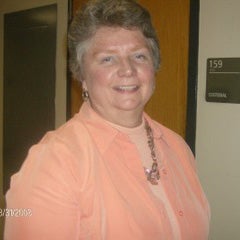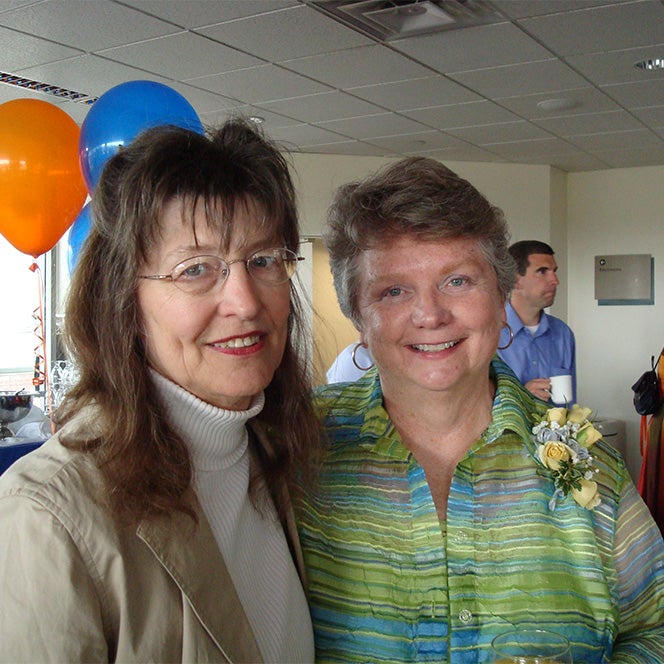Like many nurses and educators before her, School of Nursing professor emeritus Nancy Otterness saw a need among students and decided to do something about it.
Before retiring, Otterness taught in the School of Nursing for 27 years. She is no stranger to the financial burden of higher education.

“I taught senior level classes, and I knew there were students that it was questionable whether they would be even able to finish their nursing education if they didn’t get financial help,” she said. “They were taking out loans, they were working, but it was still a struggle for them.”
Otterness did not sit idly by: she has been making donations to Boise State scholarships since 1983. And she isn’t alone. “There are a lot of faculty who do give money toward scholarships,” she said.
“It takes a village to get the students through; I was just one in the wheel,” Otterness said.
“It couldn’t just be one faculty; it takes all of us to work with students, finding their needs and encouraging them and building on their strengths.”
Nancy Otterness
After retiring, she increased her donations as she was able. Otterness knows every penny given was worth it, from the “friendly faces” of former students she recognizes in local hospitals to the Christmas cards they send to thank her for helping them during the program.
In 2023, Otterness decided to give back even more. She established the Nancy H. Otterness Nursing Scholarship scholarship to help more Boise State undergraduate students begin their nursing careers.
“If students can complete their baccalaureate nursing degree then they’re going to most likely work in our community, and we need nurses,” she said. “Nurses do make a difference.”
Otterness encourages others to consider supporting students if for no other reason than making wise tax decisions. She encourages peers who have required minimum distributions from their retirement accounts to reduce their tax burden by giving that money to scholarships or charities.
“A lot of people are quite surprised at that,” she said.
Otterness has been giving to Boise State for 36 consecutive years.
Join Nancy today and support nursing students
Get to know Nancy
Nancy Otterness grew up in Chicago and participated in a career day during her junior year of high school.
“You could pick a couple of careers that you were interested in and then you spent a day shadowing a person in that field,” she said. “And I don’t know why I picked nursing, but I did.”
Otterness spent the day following a nurse at the University of Chicago Hospital. “I was so impressed with her, she was very much an educator of her patients and taught them what they could do to help manage their care,” she said.
That evening she told her parents: “I think I’ll be a nurse.”
Otterness went on to earn her Bachelor of Science degree with a major in nursing from South Dakota State University. After graduation and starting a family, she worked part-time in a variety of nursing roles, such as employee health and minor first aid for a Chicago-based company, substituting for a school nurse, and a camp nurse.

After moving her family to Boise, Nancy began teaching in the nursing program at Boise State. She went on to receive her master’s degree from Idaho State University and work part-time at Saint Alphonsus Hospital, first on the medical floor and then in-home health.
During her final years teaching at Boise State, Otterness taught community health nursing. While it’s not a flashy specialty, she loved seeing students realize how beneficial community education is for preventing and controlling illnesses.
Many nursing students she encountered during the class declared they would work in the emergency room or intensive care unit.
“Then they would finish it and say ‘You know, a lot of the things we saw in the emergency room could have been prevented if the people knew what to do and how to take care of themselves,’” Otterness recalls with a chuckle.
“That in and of itself was rewarding. Some [students] still wanted to work in the emergency room and intensive care and I said ‘Good! Because if I get sick, I want you there and I want you loving your job!’”